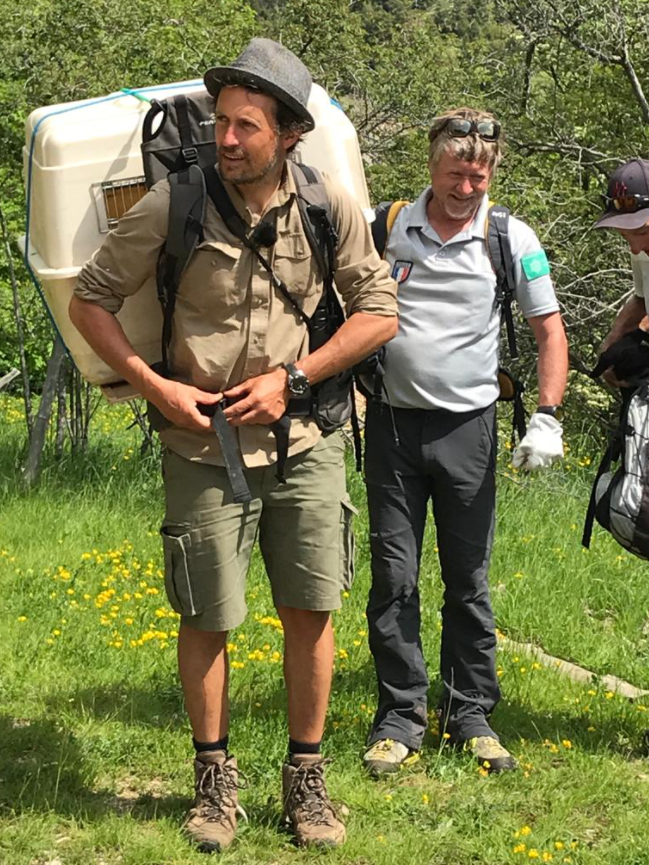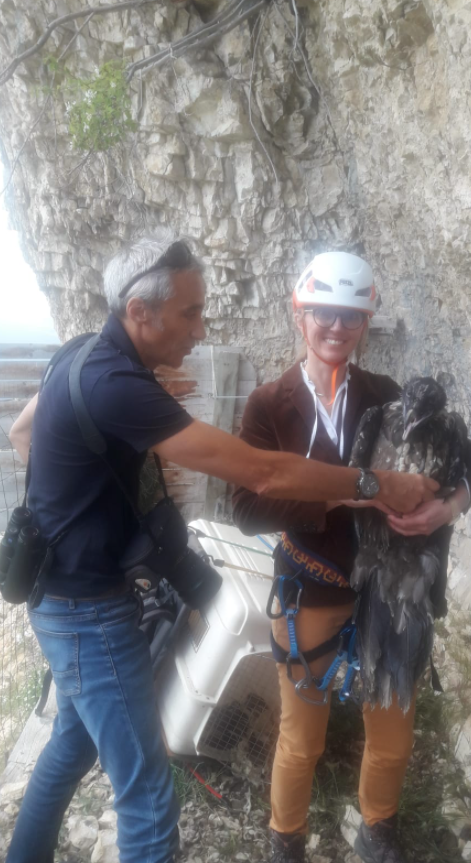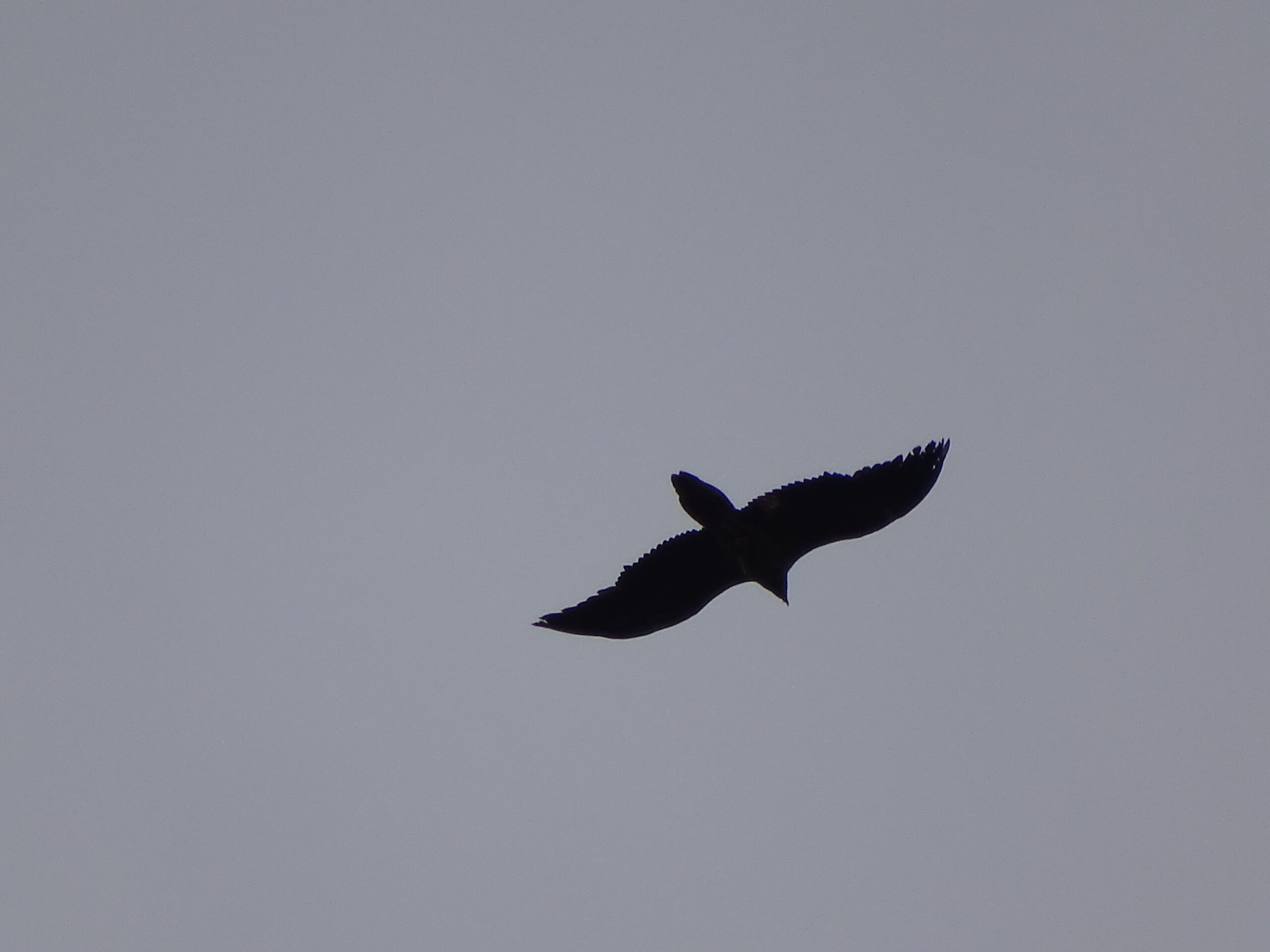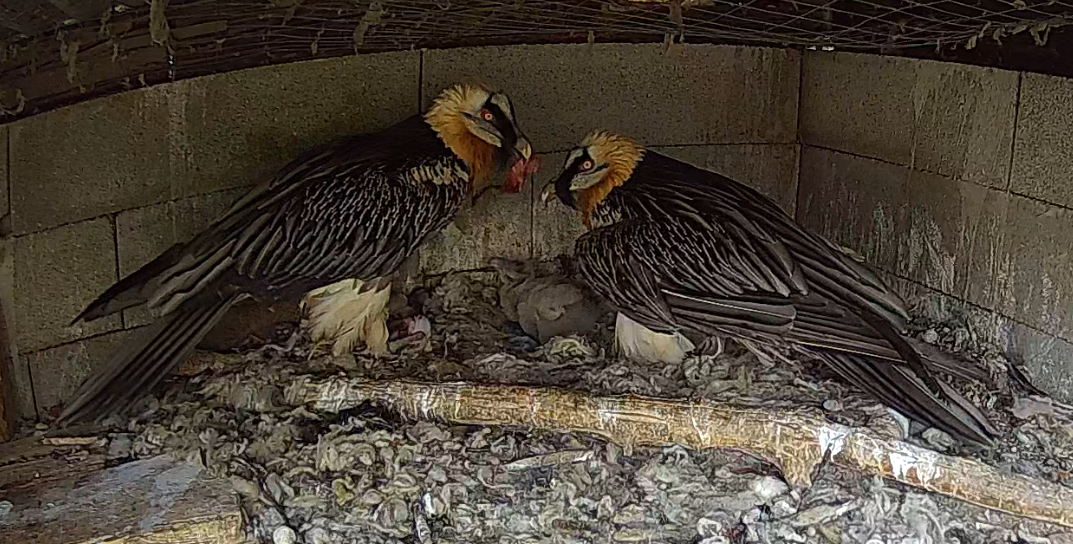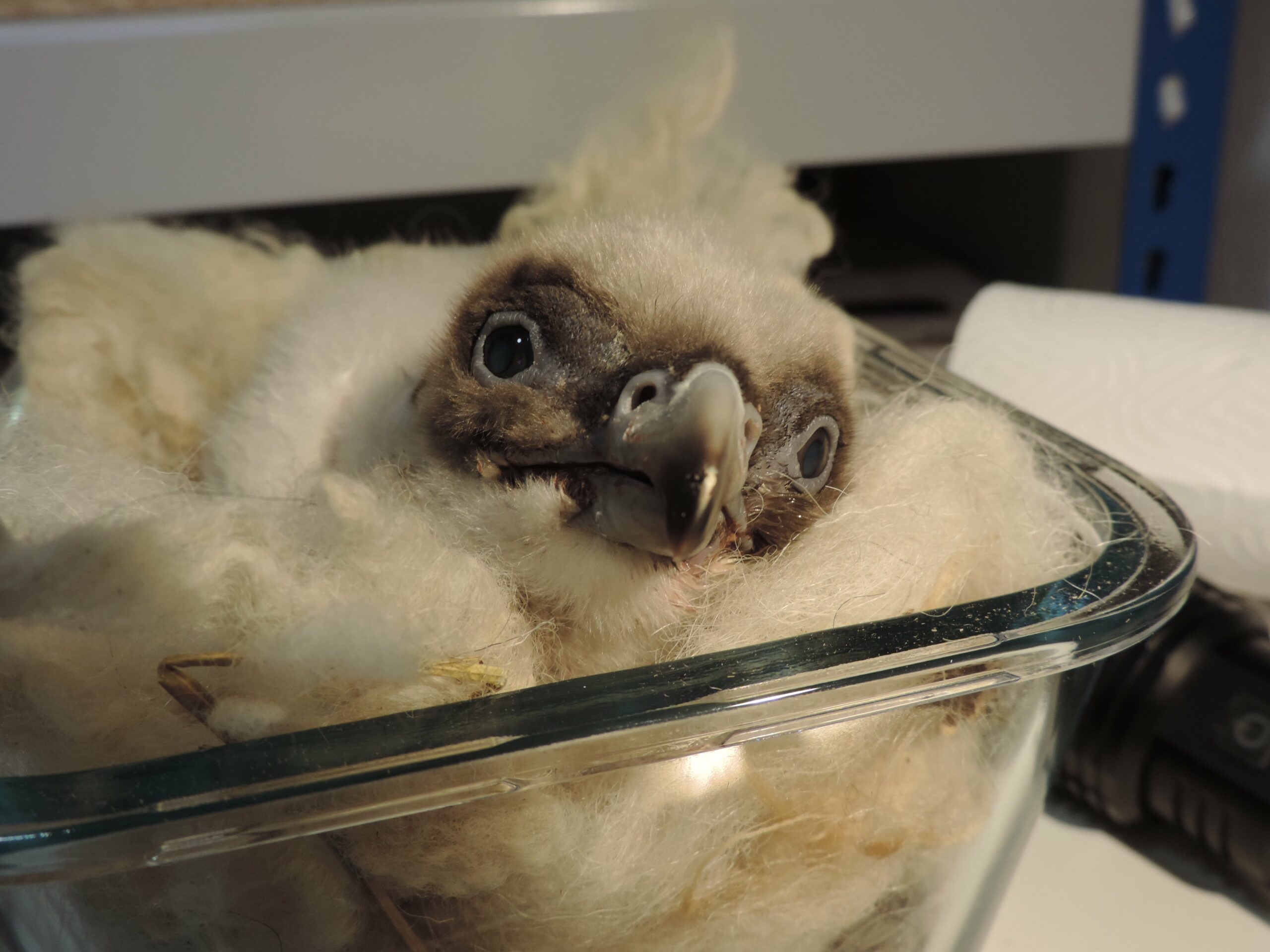
The LIFE GypConnect project released two more Bearded Vultures to the wild, this time to Vercors on 3 June 2020. The project already released two young vultures to Baronnies on 28 May and will release an additional four birds to the Grands Causses. The project aims to establish a breeding population of Bearded Vultures in the Massif Central, as well as in the Pre-Alps, through reintroduction and promoting dispersal movements between the Alps and the Pyrenean population.
Releasing the Bearded Vultures to Vercors
Both Bearded Vultures came from different breeding centres in Spain. BG1062 travelled from the Bearded Vulture Captive Breeding Centre of Guadalentin in Andalusia, where it hatched and was raised. BG1063 hatched at Vallcalent Specialised Breeding Centre in Spain and was transferred to Centre de Fauna de Torreferrussa in Barcelona to be naturally reared. BG1063 has a Greek bloodline as one of its parents originates from Greece. The team from Parc Naturel régional du Vercors travelled to the Spanish centres on 2 June to collect the birds and transported them to the release area.
The project team equipped the birds with GPS transmitters, bleached their feathers and ringed them for monitoring purposes. Following this, the team hiked to the hacking platform Parc Naturel Régional du Vercors to release the birds. In the morning, they installed the first bird, baptised Kobalann, in the hacking platform. At the beginning of the afternoon, the second bird, named Palo-Pala, joined Kobalann. We release Bearded Vultures using the hacking method, which is more or less the ‘natural’ way of fledging. The hacking platform was constructed with the comfort and safety of the birds in mind. Wool was placed for warmth and comfort, and fences were installed to avoid any disturbance by predators and ensure their safety until they fledge. During the time that they will remain in this platform, the team at Vercors will feed and monitor them without any human contact. You can watch how the young vultures are adapting to their new home in the wild by watching the live nest camera.
The LIFE GypConnect project is now awaiting the arrival of five birds to the Grands Causses.
In total, the LIFE GypConnect project reintroduced 29 Bearded Vultures in France since 2016.
Update 11/06/2020

After several days since the release of two Bearded Vultures in Vercors, the monitoring team learned more about the ‘personality’ of the two birds! Palo-Pala seems to be the dominant one, it feeds often, flaps its wings a lot and causes some brief altercations. Kobalann, on the other hand, is calmer and remains in its nest more.
The two birds also had a visitor — the Bearded Vulture Elvio that was released in the same hacking cave last year!
Update 18/08/2020

Kobalann is quite adventurous. Since Thursday, 6 August, she has been wandering a lot and has taken a little tour around the Pic de Bure in Dévoluy. She makes her daily flight on the Grand Veymont and safely returns home to Archiane, often covering a distance of 100 km per day.
Palo Pala does not travel as much and seems to move between Veymont in Tête Chevalière and the Mont-Aiguille. He flies an average of 60 km per day and has only returned to Archiane once.
Stay tuned with Bearded Vulture releases
This breeding season, a total of 25 Bearded Vulture chicks are alive and healthy within the Vulture Conservation Foundation’s (VCF) Bearded Vulture Captive Breeding Network (EEP) that breed the species in captivity for conservation purposes. The VCF and its partners will release at least 21 young Bearded Vultures into the wild across six regions in Spain, France and the Alps to boost the local populations of the species, with the first releases of the season taking place in Andalusia, Spain, on 9 May 2020. Some of the birds that hatched will remain in captivity to address the sex-ratio imbalances and also to secure important bloodlines in the captive stock. More releases will take place in June and July.
Stay tuned with the releases by tracking #BeardedVultureReleaseSeason onFacebook, Twitter, LinkedIn and Instagram!
LIFE GypConnect

Led by the League pour la Protection des Oiseaux (LPO), the LIFE GYPCONNECT project aims to establish a breeding population of Bearded Vultures in the Massif Central and Department of the Drôme. Releasing captive-bred Bearded Vultures into the wild at sites such as the Parc Naturel Régional des Grands Causses, Parc Naturel Régional des Baronnies Provençales and Parc Naturel Régional du Vercors will create a core population that will connect the two populations of the species in the Alps and Pyrenees. To facilitate movements between the new population and the Alpine and Pyrenean populations the LIFE GYPCONNECT team is creating a network of supplementary feeding stations, and tackling threats such as poisoning, and collision and electrocution with the electricity infrastructure.


